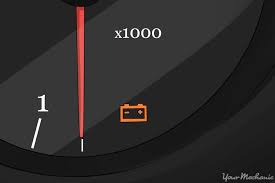If you’re wondering whether your check engine light will come on for an alternator problem, the answer is yes.
The check engine light is a warning system that indicates a problem with your vehicle’s emissions system. It can come on for many reasons, but one of the most common reasons is an alternator issue.
If your check engine light comes on and stays on, it’s best to get it checked out by a mechanic right away. If you don’t, you could be at risk of serious damage to your car’s engine or other parts.
Where is a Vehicle’s Alternator Located?
The alternator is a component of a vehicle’s electrical system. It’s responsible for generating electricity to power the car’s lights, engine and accessories.
In order to understand how the alternator works, it’s helpful to know where it’s located on your vehicle. The alternator is typically located on the front passenger side of the engine compartment, near the radiator. The belt that drives the pulley on your alternator is also visible from this location.
If you see your check engine light come on and suspect that it’s related to your alternator, first check your belts for fraying or cracking. If any part of your belt looks damaged, replace it immediately to avoid further damage to your vehicle’s electrical system or internal components.
If there are no visible signs of damage to your belt but you still notice that your check engine light continues to come on after starting up, take your vehicle into an auto repair shop right away so they can diagnose what might be causing the problem with your check engine light coming on in the first place!
If you’re looking to replace your alternator, you probably want to know how much it costs.
How Much Does It Cost to Replace an Alternator?
The cost of a replacement alternator depends on the type of car you have and what kind of job needs to be done.
If you need the job done by a professional mechanic, it can cost anywhere from $150 to $400. If you do it yourself, however, the cost will be considerably less—around $70-$180.
What Happens When Your Alternator Goes Out?
When your alternator goes out, your check engine light is likely to come on. This can be scary, but it’s also a sign that you’re in need of some serious help.
What happens when your alternator goes out? Your car’s electrical system is powered by a battery. The alternator is what keeps that battery charged and ready for use so that the lights and other electrical components can keep running smoothly.
When the alternator goes out, it means that the battery is not being properly recharged, which can lead to all kinds of problems with your car’s electrical systems.
How long does a car alternator last for?
The average life expectancy for a car alternator is about 100,000 miles. But this is just an average; some cars will last longer than that while other cars will need replacement after only 50,000 miles or less.
It’s important to note that there are many factors that go into determining how long an alternator lasts in one car compared to another:
- the quality of parts used in manufacturing
- proper maintenance and cleaning
- environmental factors like dust and moisture
- how often you use air conditioning
- driving habits like hard acceleration or frequent short trips
- and even the type of engine (for example: older engines tend to have more problems with their alternators).
Alternator Failure Warning Signs
The most common symptom that indicates that your alternator needs repair is a check engine light coming on while you are driving.
A check engine light will not only indicate if there is an issue with your battery but also tell you what it needs to be replaced with (e.g., alternator).
Other symptoms include:
- Headlights dimming or flickering while driving at night.
- Electrical problems such as radio turning off or headlights flickering.
Alternator Problems and Dashboard Warning Lights
The check engine light is a dashboard warning light that is designed to tell you when something is wrong with your vehicle.
It is connected to your car’s computer, which interprets the data it receives from various sensors and then sends instructions to your dashboard warning lights.
When there is an issue with your alternator, it can cause problems with your charging system, which will trigger a check engine light.
Conclusion
A check engine light can indicate a problem with your alternator, which is an important part of your car’s charging system. If you see this light, it’s advisable to take your vehicle to a mechanic for diagnosis and repair.


